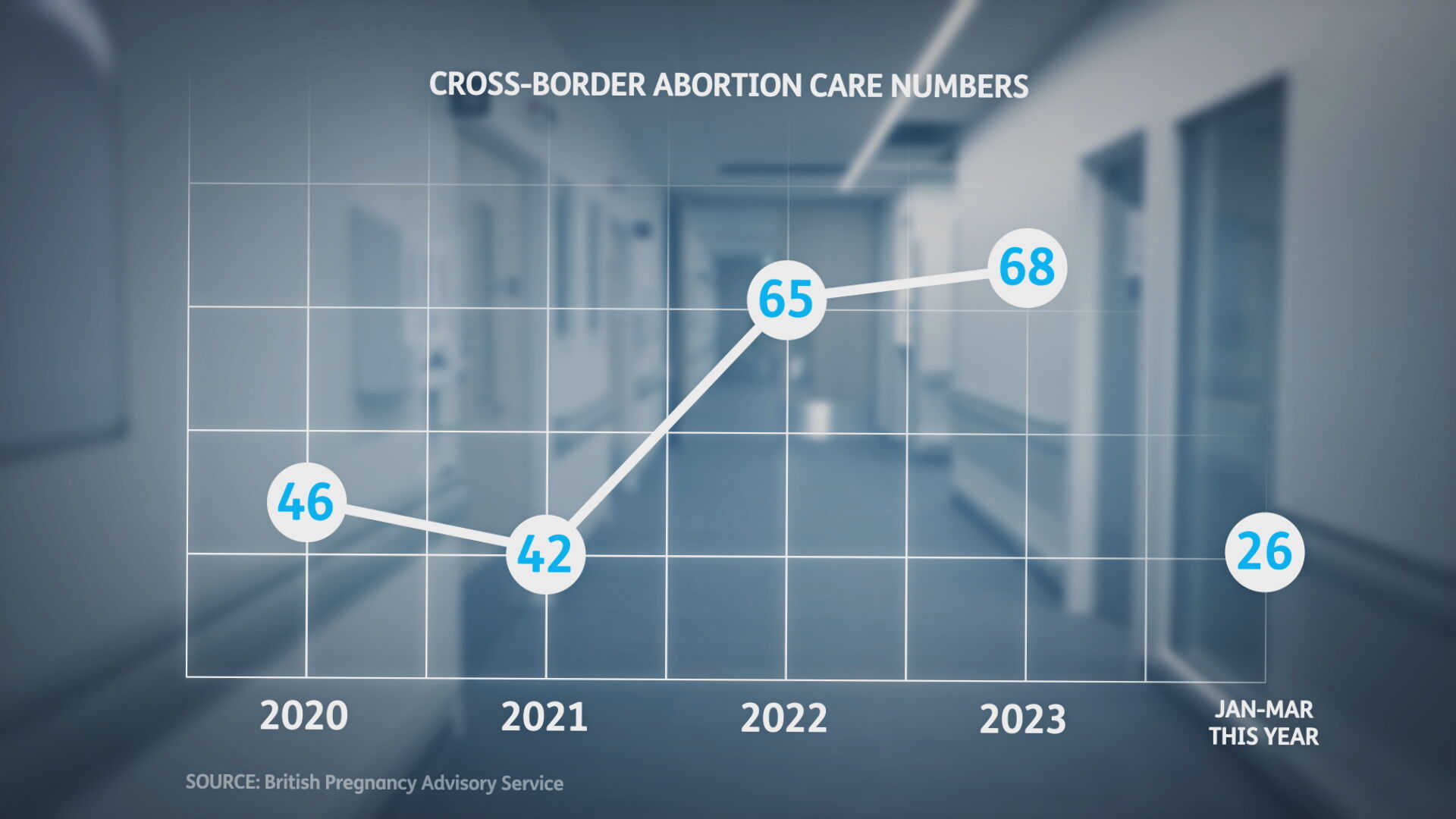Jessica was 23 when she unexpectedly fell pregnant.
She had been on contraception and showed no obvious signs, so it took until the eighteenth week of her pregnancy before she realised.
By that stage, even though she was legally entitled to an abortion, she had reached the cut-off in Scotland and her only option was to make an 800-mile round trip to a clinic in England.
She is among dozens of women who made the journey in the first quarter of 2024.
In fact, the number of women travelling from Scotland to England for abortion care is at its highest level since before the pandemic, according to new figures from the British Pregnancy Advisory.
The legal limit for an abortion in the UK is 24 weeks. But women in Scotland now only have up until 20 weeks due to lack of provision north of the border.
Jessica told STV News she felt very let down by her local health board. She said: “For them to say I needed to make what was probably one of the biggest traumatic journeys of my life to make this decision; I felt very alone and isolated and not in my home, which made it even worse.”
“When I finally got on the plane I couldn’t believe how much I had went through in the course of two days – I was very, very sick, I couldn’t eat anything, I was crying, I was swollen up and I was in complete agony.”
And Jessica isn’t the only one affected.
The number of women and girls travelling to England from Scotland for abortion care has been rising – going from 42 in 2021 to 65 in 2022 and 68 in 2023. By April this year, 26 women were already forced to make the journey.
 STV News
STV NewsThe British Pregnancy Advisory Service (BPAS) book appointments for women travelling from Scotland to England as well as providing funding for travel and accommodation.
Rachael Clarke, BPAS chief of staff, said: “Medical abortion care is already provided for women who have a diagnosis of a serious or fatal foetal anomaly, and that’s absolutely right – these women have to be able to access care locally.
“But to then send women who may be in very difficult social circumstances, who may be the victims of abuse, who may be girls under the age of 18 or 16, to force them to travel to England places a real value judgement on the kind of abortions that health boards are willing to provide – and those that they think aren’t really their problem.”
The Scottish Government says it is committed to establishing a service once an agreement can be reached with health boards, but campaigners say they need a tangible timeline
Lucy Grieve, co-founder of Back Off Scotland, said: “The government seem to be saying all the right things – but when it actually comes to putting practice into policy, there seems to be no real passion to solve this problem.
“They commissioned research on it in 2014 – the research came back showing that it was a necessity that they must bring in mid-trimester services in Scotland.
“The fact that they haven’t yet, I don’t know what they’ve been doing for the past 30, 20, ten years on this – it just seems to be completely at a dead end.”
Jessica added: “If they are able to do it in England, why are they not able to do it here? It’s already a hard enough decision to make.
“We shouldn’t be referring to charities when our own health boards and doctors can be enabled to help us.”
The Scottish Government says it completely understands concerns and that it’s working with health boards.
Jenni Minto, minister for public health and women’s health, said: “While the vast majority of abortion services carried out in Scotland takes place prior to 14 weeks gestation, the Scottish Government completely understands concerns raised regarding women travelling to access abortion services up to 24 weeks gestation.
“National Services Scotland has done significant work to consider the available delivery options for this service, and a short-life working group has been established to consider these alongside NHS boards.
“The Scottish Government is committed to establishing a service within Scotland once an agreement can be reached with health boards on the best way forward.
“The Scottish Government is working to understand this significant increase in demand for abortion services in recent years and address the reasons behind it, including improving access to contraception.
“All women should be able to access essential services, such as contraception and abortion care, in a timely, safe and equitable manner.”
Follow STV News on WhatsApp
Scan the QR code on your mobile device for all the latest news from around the country






























